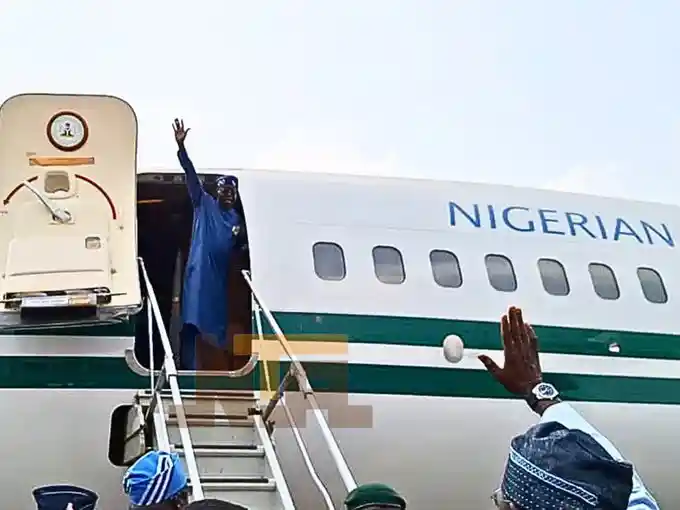President Bola Tinubu will depart Abuja today to commence a 10-day “working vacation” in Europe, spending time between France and the United Kingdom.
It was gathered that the trip forms part of the president’s annual leave. A statement by Bayo Onanuga, the president’s special adviser on information and strategy, confirmed the itinerary, noting that Tinubu is expected to return to Nigeria at the end of the vacation.
This latest European trip comes shortly after a 12-day diplomatic tour to Japan and Brazil, which included stopovers in Dubai and Los Angeles. During the Asian leg, President Tinubu attended the ninth Tokyo International Conference on African Development (TICAD9) in Yokohama, Japan. In Brazil, Tinubu held bilateral meetings with President Luiz da Silva and senior officials, resulting in the signing of several memoranda of understanding (MoUs) in key sectors including aviation, foreign affairs, science and technology, and agriculture. The president returned to Nigeria on August 28 following the tour. Earlier this year, in April, President Tinubu spent 19 days on private visits to France and the UK. Observers note that these trips reflect the president’s approach to combining work engagements with brief periods of leave abroad. European Working Vacation: Key Highlights Destination: France and the United Kingdom Duration: 10 days Purpose: Annual leave combined with official working engagements Previous Trips: Japan, Brazil, Dubai, and Los Angeles The president’s working vacation underscores Nigeria’s ongoing efforts to strengthen diplomatic and economic ties with European partners, while ensuring continuity in governance and international engagements.
The recent diplomatic tour in Japan and Brazil highlighted strategic collaborations, particularly in science, technology, agriculture, and trade. Experts suggest that maintaining a balance between official duties and personal leave abroad has become common for Nigerian leaders in recent years, reflecting global diplomatic practices.





